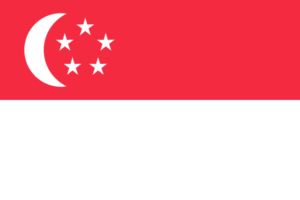
Region: Asia
Disability Definition
There is no statutory definition of disability in the employment context under Singapore law. The Singapore Government uses the World Health Organisation International Classification of Functioning, Disability and Health, known more commonly as ICF.
Singapore’s Enabling Masterplan helps to define disability as “those whose prospects of securing, retaining places and advancing in education and training institutions, employment and recreation as equal members of the community are substantially reduced as a result of physical, sensory, intellectual and developmental impairments”.
Reference: Ministry of Social and Family Development
Legislation
Article 12 of the Constitution of the Republic of Singapore states that “all persons are equal before the law and entitled to the equal protection of the law”.
On 30th November 2012, Singapore signed the United Nations (UN) Convention on the Rights of Persons with Disabilities (CRPD). The Agreement was then ratified on 18 July 2013 and came into effect for Singapore on 18 August 2013.
Employer Legal Requirements
No quota or goal in place.
Instead of having legislation to protect employees from discrimination based on disability, Singapore has adopted a promotional and education approach. The Tripartite Alliance for Fair and Progressive Employment Practices (TAFEP) has guidelines on fair employment practices, encouraging employers to adopt progressive Human Resource (HR) practices.
Special Employment Credit (SEC) is offered as an incentive for companies to hire Singaporean workers with disabilities. Employers will get a credit of up to 16% of the wages of their worker with disabilities.
Accessibility Requirements
Building and Construction Authority of Singapore (BCA) has reviewed and strengthened the Code on Accessibility in the Built Environment 2013. the above Code only applies to buildings that are constructed after the Code came into effect. There is no legislation to ensure older buildings are accessible.
The Government also provides funding support to companies to make their workplace and buildings more accessible to persons with disabilities. The two schemes are as follows: 1) Open Door Programme (ODP) provides up to 90% subsidy of workplace modification. 2) Accessibility Fund subsidies up to 80% of the construction cost of basic accessibility features such as ramps, lifts, accessible toilets and signage.
Cultural Norms
Singapore has four national languages – they are Chinese, Tamil, English and Malay.
People who were unable to work have often been seen through a utilitarian lens, since they were deemed as unable to contribute economically to the country.
Many Singaporeans are unsure how to interact with people with disabilities because the etiquette in such situations was unclear.
Business Practices/Examples
Additional content coming soon.Insights
It is estimated that more than 110,000 Singaporeans have some form of disability, approximately 3% of the citizens living there. For individuals over 50, around 13.3% are considered disabled.
Singapore does not have specific anti-discrimination legislation and NGOs believe companies will continue to have discriminative practices and attitudes towards persons with disabilities until they do adopt such legislation.
Transitioning from a sheltered workshop approach to integrated, inclusive and supported employment models
Supplier Diversity
Certification is in place for women-owned business enterprises (WeConnect).
LGBT rights have been slow to progress and supplier diversity would be less likely to occur since society is less likely to support LGBT-owned businesses. Pink Dot SG is an annual LGBT-rights event that is elevating the voice of the community and starting to demand change.
Talent Sourcing Resources
SG Enable – Disability Employment: Singapore Citizens and Permanent Residents only. Disabilities supported by SG Enable for adult services are: autism spectrum disorder, intellectual disability, physical impairment, hearing impairment and visual impairment. Open Doors Programme is a government supported grant for working with employers.
RISE Mentorship Programme (at SG Enable) –
The Enabling Employers Network (EEN) is an alliance of like-minded employers of persons with disabilities who champion and advance the employment opportunities for persons with disabilities. Members of EEN have collectively employed a total of about 200 persons with disabilities.
Additional Resources
The Disabled People’s Association (DPA) is a non-profit, cross-disability organisation, officially registered in Singapore on 28th April 1986. We are a full member of the National Council of Social Service and also are registered as an Institution of Public Character with approval to issue tax-exemption receipts to our donors.
Third Enabling Master Plan – Critical document outlining employment objectives, including a call for the private sector to lead the way for inclusive hiring
Singapore Assn for the Visually Handicapped
ASEAN Disability Forum (ASEAN-DF) is a network composed by DPOs of the ASEAN countries of Southeast Asia. It is a platform where DPOs coordinate actions to advocate for disability inclusive policy formulation and implementation.
References
NGOs
SG Enable – provides an inclusive index – an online self-diagnostic tool for a company to identify key focus areas for inclusive hiring, and to find out how inclusive your company is. Companies are able to engage with persons with disabilities from Special Education schools, and Institutes Higher Learning (IHLs) through transition-to-work initiatives
Tomowork – Provides a 12-week talent program for unemployed people with disabilities to gain a better understanding of their talents and abilities to secure job opportunities
